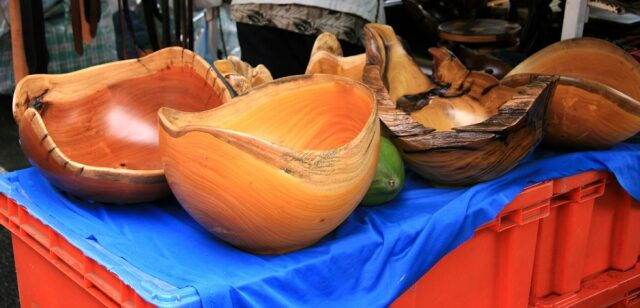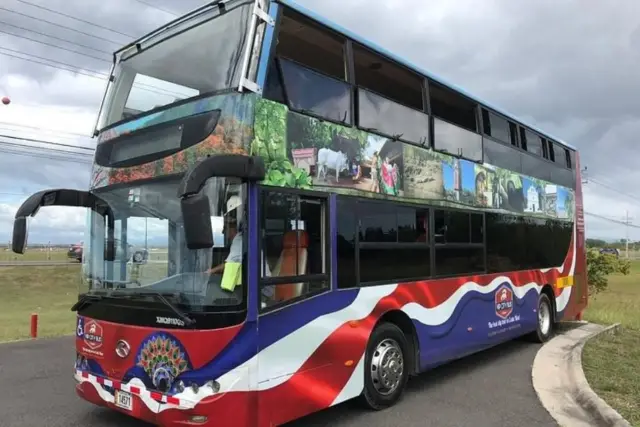Given its geographical location and proximity to the United States, Costa Rica is one of the most sought-after destinations by tourists from around the world. Every year more than 49% of the tourists come from the United States alone. No doubt, it derives 5.1% of its GDP from the tourism industry.
But, few people are aware that Costa Rica is a pioneer in ecotourism. Ecotourism is a form of responsible travel to natural areas while ensuring minimum impact on the environment. It aims at the conservation of the environment and contributes to the development of the local communities.
The sign at Playa Hermosa rightly sums it up “Don’t take more than photos, don’t leave more than footprints”! This is what your aim should be. To become a responsible tourist! And not leave any negative impact behind. So, how can one become a responsible tourist?
Here are some ways you can indulge in responsible tourism:
- Book your stay at an eco-friendly accommodation
There is no dearth of eco-friendly properties in Costa Rica. On doing some basic research on your destination, you will find a list of properties undertaking sustainable practices. Most of them are also built in a way that protects the flora and fauna of the place and does not harm the environment. Some also actively participate in conservation efforts.

But Beware! In Costa Rica, the term ‘ecolodge’ does not necessarily mean that the property follows environmentally friendly practices. The thumb rule to go by is to check the property’s website for details on initiatives taken by them to make their property eco-friendly.
- Eat local food cooked with local ingredients
Local communities are often highly dependent on the income generated through tourism. By eating at a local restaurant that makes fresh food with local ingredients, you not only help boost the local economy but also end up eating a highly nutritious and healthy meal. Farm to Fork!
- Support local skills by buying locally made souvenirs
Always buy souvenirs made by locals. Often, they are the most beautiful ones! They are handcrafted with love and passion. This way, the craftsmen benefit directly and they do not have to look for better opportunities to earn money.

You can buy directly from a community, or from a store where you see local artisans working on the souvenirs. Do not buy from a big store that is selling imported souvenirs. What’s the point of a souvenir then?
- Support local groups working for a cause
Many properties are directly or indirectly working for a social cause. Those who are indirectly involved, sometimes partner with local groups or organizations and help them raise donations by advocating for the cause on their property.
Some properties may be running a dog shelter, while some may be rescue centers for endangered species. Some may simply be working to save the environment.
Please donate whenever you can. Your funds can help them employ resources for their efforts. And, this is also a good way of giving back to society.
- Choose local guides for your tours
If you are looking for a guide for your tour, insist on hiring a local guide. Not only would he/she know better about the place but you are also supporting local employment.
- Visit places that are focused on conservation & restoration
Costa Rica has more than 30 national parks, 19 reserves, and 58 wildlife refuges. These are focused on preserving fragile ecosystems, rainforests, freshwater sources, endangered wildlife, and much more.
When you visit these places, you pay an entrance fee that directly funds their conservation efforts. It’s always a good idea to plan a visit to such places rather than taking cruise tours, for example.
- Do not buy products made from endangered animals
Never buy products made from the skin, shells, fur, feathers, or teeth of animals. When you buy such products, you are contributing to the illegal trading and hunting of these animals. This puts them at a high risk of endangerment, or even extinction.
- Use public transportation
Wherever possible, use public transportation to travel to your destination. If not that, try taking a shared shuttle. This would significantly reduce your carbon footprint.

Though most transportation services contribute to carbon emissions, emissions per person are less for public transport and shared shuttles.
A shared shuttle carries up to 12 persons (sometimes even more) in one single trip, which means that 12 people can travel for the same level of emissions as one person in a private transport would.
- Do not litter
Never, litter at these beautiful places. Throw the trash in designated bins, and in the absence of bins (which is highly unlikely in Costa Rica) carry it with you till you find one.
- Be respectful of the flora and fauna
If you plan your trip well, you will almost effortlessly encounter wildlife. That too in their natural habitats!
Be mindful of their presence. Observe them from a safe distance, and avoid touching them. This will not scare them and the chances of you getting attacked are low. When taking pictures, make sure the flash is off.
Do not pluck flowers, leaves, wild fruits, and stems from the trees. Do not carry seeds with you. This may disturb the ecosystem of the place.
Final Thoughts
Responsible tourism is not rocket science! It just takes some conscious planning, mindfulness, and ownership of your actions. Be a torch bearer of responsible tourism, and pass on the torch when you can!

For those who have experienced shifts in consciousness and know that more peace, joy, and love awaits in a better living environment. A bold shared vision. A living community and hub for innovation. A sustainable ecosystem for living and working. A model for the new future.
